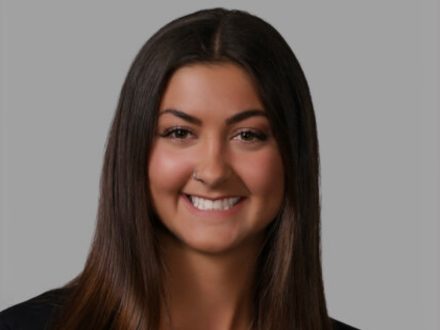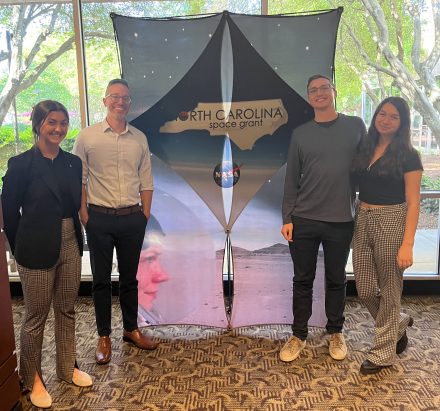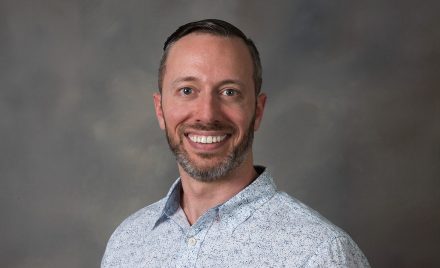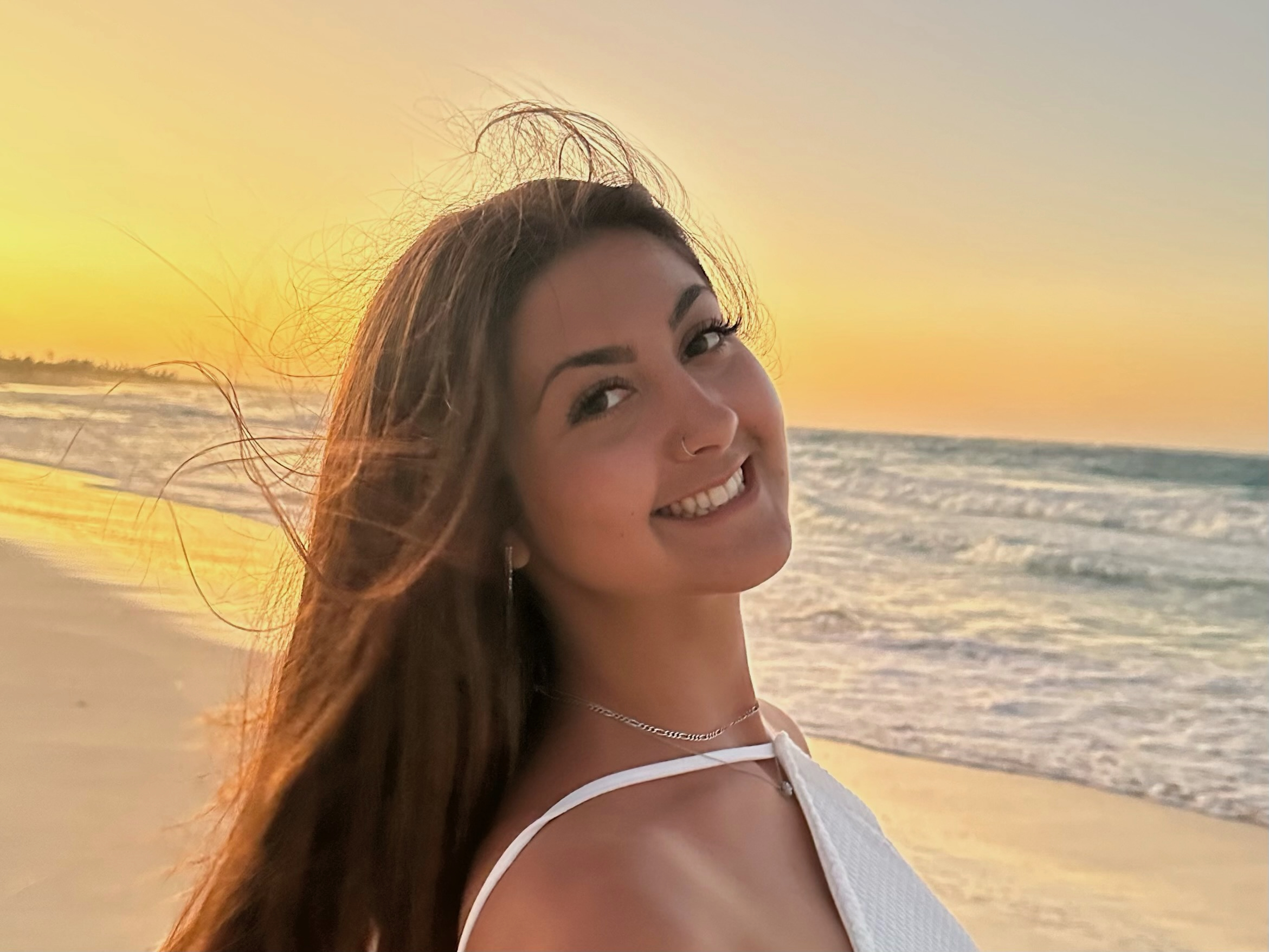The competitive award will allow Levanti to continue her research on black holes in dwarf galaxies, which could have implications for NASA’s James Webb Space Telescope.
Jules Levanti ’25 started her collegiate journey studying finance – not even thinking about undergraduate research, let alone studying the universe. But three years later, Levanti is the first Elon University student to be named an Undergraduate Research Scholar by North Carolina Space Grant to further her research on dwarf galaxies.
“When I first got to Elon, I remember seeing the Five Elon Experiences, looking at research and saying ‘Oh, I’m not doing that,’ but obviously things have changed and thank God,” said Levanti.
‘Where I’m meant to be’
Levanti, who is studying astrophysics with minors in computer science and mathematics, said astronomy was always an interest, but it wasn’t until she took an astronomy class at Elon that she began to consider it as a major.
“My roommate at the time convinced me to switch my major. She said ‘You like astronomy better than you actually like finance,’” Levanti said. “So, I took a physics class and then the next astronomy class and thought: ‘This is where I’m meant to be.’”

The 16 Undergraduate Research Scholarship awardees receive $8,000 to spend on research and will also present at the N.C. Space Symposium at N.C. State in 2025. N.C. Space Grant is a state-wide network of North Carolina higher-education institutions, industries, government entities, educational programs and nonprofit partners with NASA related interests. The organization works to promote, develop and support space-related STEM research, education and public outreach.
“We’re proud to assist these undergraduate students as they begin on their research,” said Sandy Canfield, assistant director of N.C. Space Grant. “The students’ research in STEM fields has relevance to NASA’s Mission Directorates and will give them invaluable experiences they can bring into their futures.”
Levanti has used part of the grant on a new laptop that is integral to her work, and the rest will be used to visit research collaborators at CEA Paris-Saclay, a French research center, and NASA’s Goddard Space Flight Center in Greenbelt, Maryland. She will also present her research at the American Astronomical Society annual meeting in January 2025 in National Harbor, Maryland.
“I’m very blessed to even be considered for this grant,” says Levanti. “I worked a lot on the application, and it helped me further understand the importance of my project and how to communicate it properly. In science, research means nothing unless you can communicate it well.”
Galactic insights

Helping her with the application was mentor Chris Richardson, associate professor of astrophysics and Japheth E. Rawls Professor. Levanti is working with Richardson to study active galactic nuclei, or black holes actively siphoning nearby gas, in dwarf galaxies.
“We call these black holes active galactic nuclei because they let off really intense energy, heat and light,” Levanti said. “Sometimes when you’re looking at that source it mimics another source in the galaxy called an ultra-luminous X-ray source, which is a much smaller black hole and a star in a binary doing the same thing. My research has been attempting to differentiate what we’re looking at when we’re looking at the light coming from these dwarf galaxies.”
According to Levanti, dwarf galaxies can serve as a model for the past universe and allow researchers to study the early universe. The research could even have implications for the James Webb Space Telescope – a space observatory launched by NASA designed to study the universe in infrared wavelengths, allowing scientists to observe distant galaxies, stars and planetary systems.
“This research will give us predictions that we can use for a proposal to the James Webb Space Telescope to give us an even more in-depth understanding of the phenomena that’s the focus of her research,” Richardson said.
“In science, research means nothing unless you can communicate it well.”
-Jules Levanti ’25
Amplifying astrophysics
Elon is currently the only degree-granting institution for astronomy and astrophysics in North Carolina. The program in Elon College, the College of Arts & Sciences has grown from allowing students to take astronomy elective courses, to then a minor and now a full bachelor’s degree programs in astronomy and astrophysics.

“When the astrophysics degree was created, the program started to blow up,” said Richardson. “Now we have more astrophysics and astronomy majors than physics majors along with five astrophysics and astronomy fellows coming in, which is the total amount that we had last year among all classes.”
Richardson says there has been a nationwide increase in students wanting to study astronomy and astrophysics, along with an overall push toward STEM subjects, including students like Levanti who decided to make the shift to STEM in college.
“Jules is one of the strongest, if not the strongest, researcher I’ve worked with and she’s had an incredible trajectory,” Richardson said of mentoring Levanti. “I had the pleasure of having her in class one year and she really set herself apart among the brightest students in the class. The level of work ethic and tenacity to understand the material was impressive.”
This research is just one project keeping Levanti busy. She was awarded a Research Experience for Undergraduates (REU) this summer to also study black holes at Penn State. However, Levanti isn’t always consumed with research on black holes. She has worked at the Elon Technology Service Desk since her first year – an opportunity to solve different problems than those in space. And she continues to still have some of her business ties as part of the Mu Pi chapter of Alpha Kappa Psi, the largest co-educational professional business fraternity.
But as she prepares for graduation in spring 2025, Levanti is still looking up at the stars, hoping to continue scientific research and apply for graduate school to get her doctorate.



